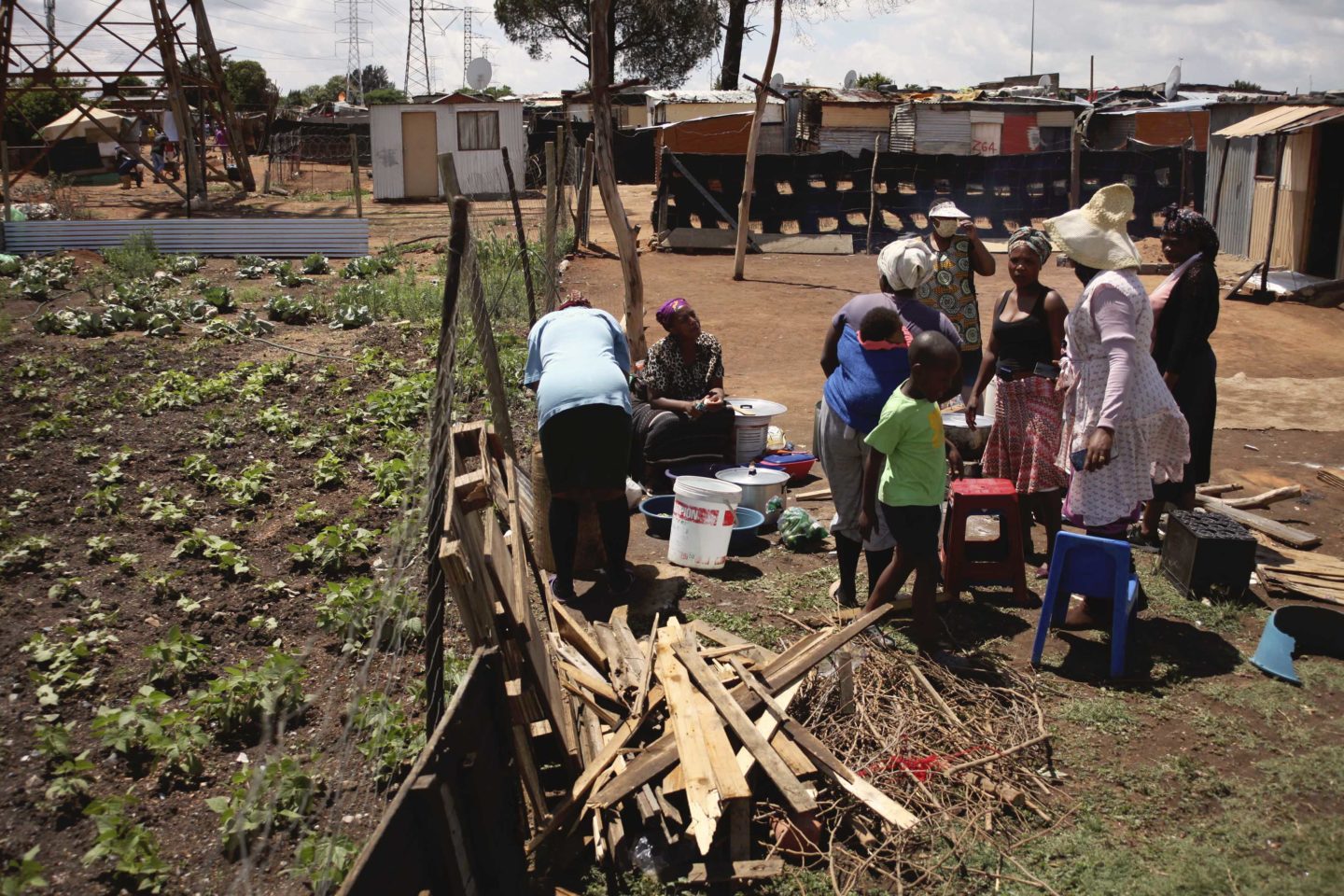Theatre giving voice to the oppressed
Theatre, besides being a form of entertainment, can be a powerful medium of protest too. Residents of a land occupation in Tembisa recently staged a participatory play to illustrate the point.
Author:
29 November 2021
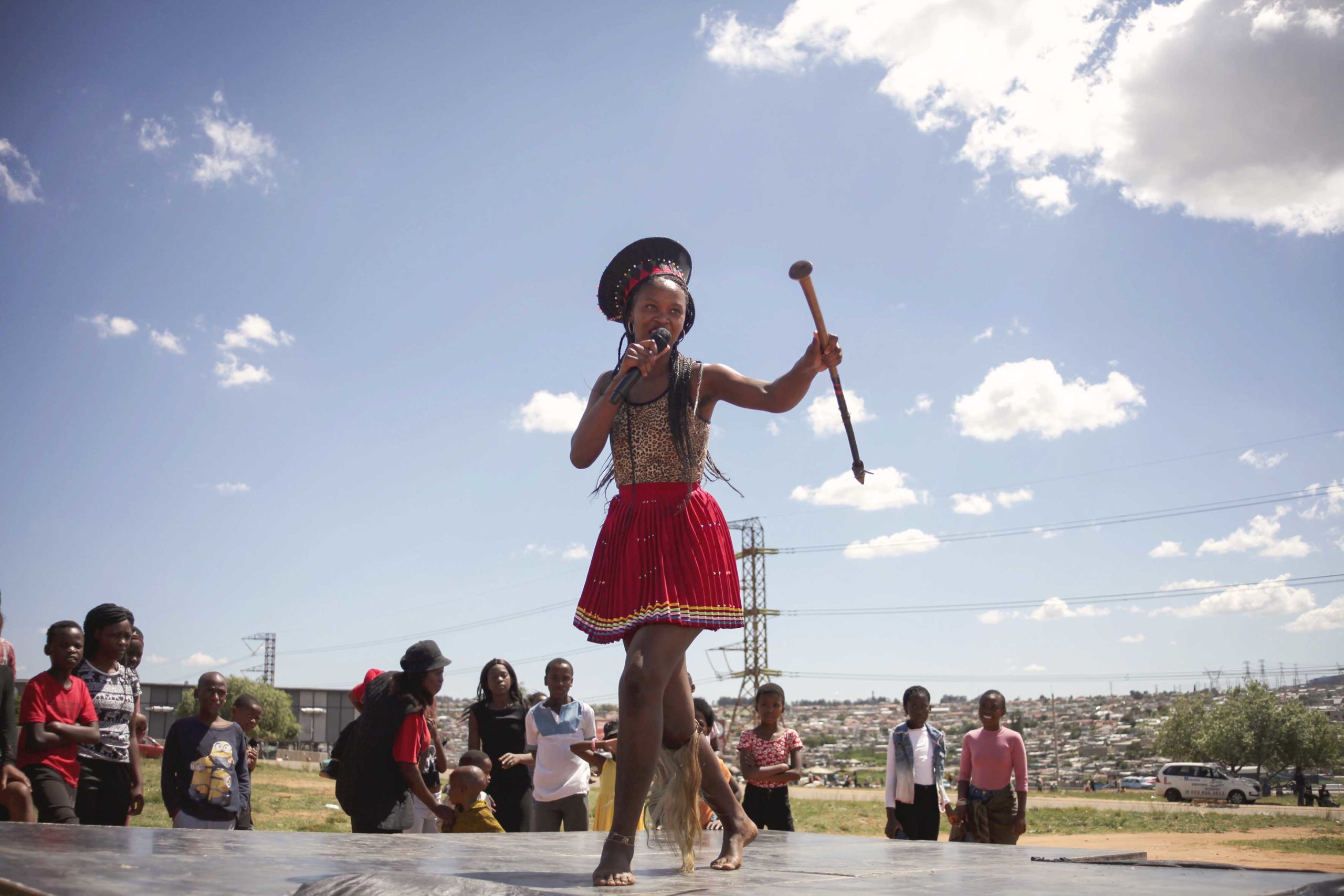
On the last Friday of October, residents of Zikode Village in Tembisa, staged a play in which many of them, including children, took part as performers.
The play, called the Theatre of the Oppressed, takes its name from Brazilian theatre practitioner and activist Augusto Boal’s book of the same name. Under this very moniker, Boal conducts workshops where he empowers and encourages oppressed people and communities to express their struggles through the medium of theatre.
Musa Nonkwelo, 18, a matric student and performing arts enthusiast from the settlement, took inspiration from this and wrote a play. She and other Zikode residents worked to organise an event that narrates the story of how they came to occupy the land that is now Zikode Village. The play also highlighted the difficulties those who live in this place have overcome in the time it has existed.
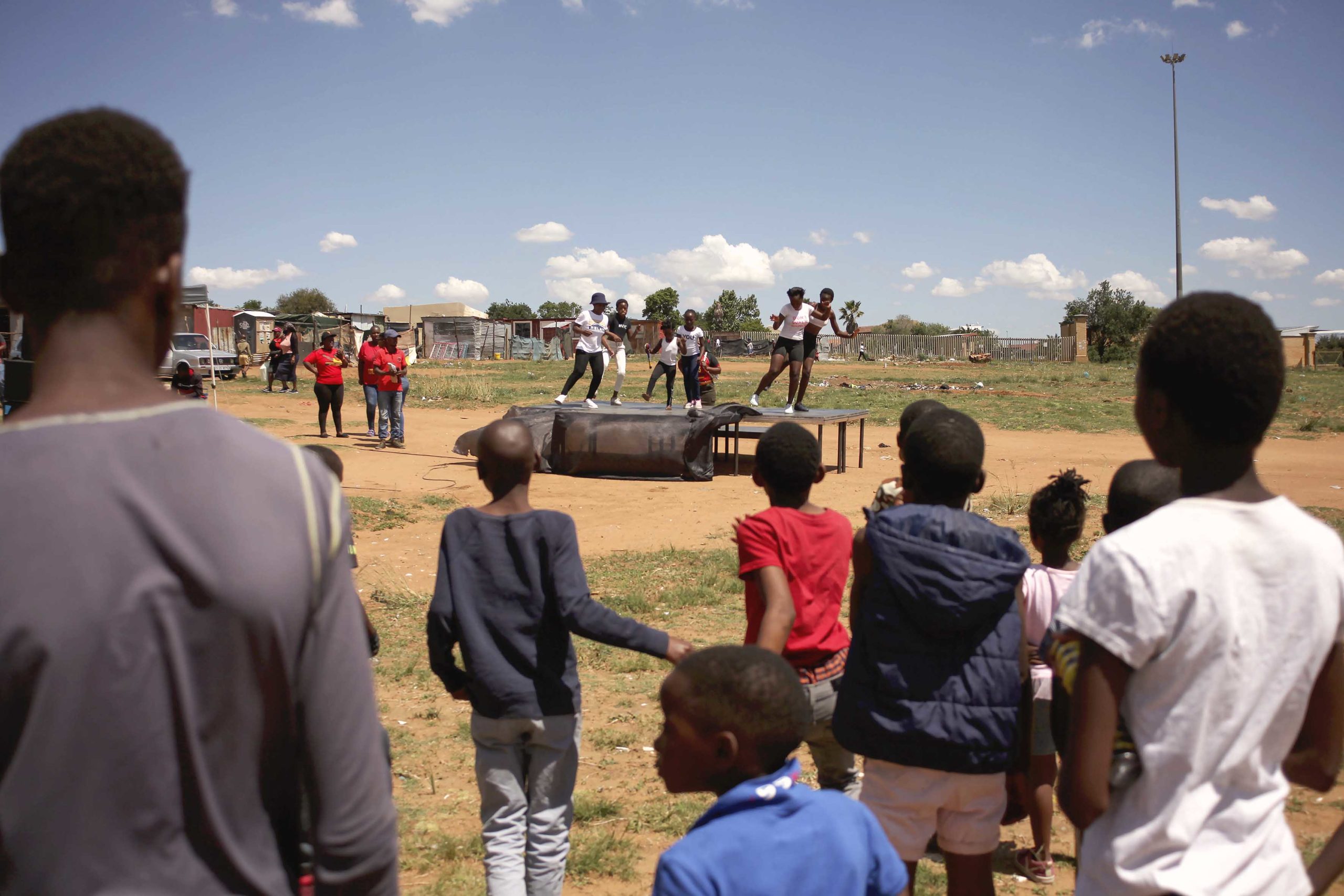
The settlement was created in 2019. Many of the residents came from rented lodgings in nearby Vusimuzi settlement. Facing evictions, they decided to establish a new community, naming it after S’bu Zikode, president of Abahlali baseMjondolo, the shack dwellers’ movement. They say the name represents their aspirations, adding that they draw “hope and resilience” from other occupations – like the recent establishment of the self-sufficient eKhenana settlement in Durban.
“When the struggle for this land began we knew that it was important to unite and stick to the main goal… The reblocking [rearranging of shack settlements in clusters] tore apart many of our homes,” says Melita Ngcobo, 40.
“Some of us couldn’t take it anymore and we then decided to occupy this vacant land that would be able to accommodate all those rejected from an already suffering place.
“In essence, moving here is the best thing we could do for ourselves because we’re not going to get that from the government, that is clear,” says Ngcobo, who was one of the first to move from Vusimuzi.
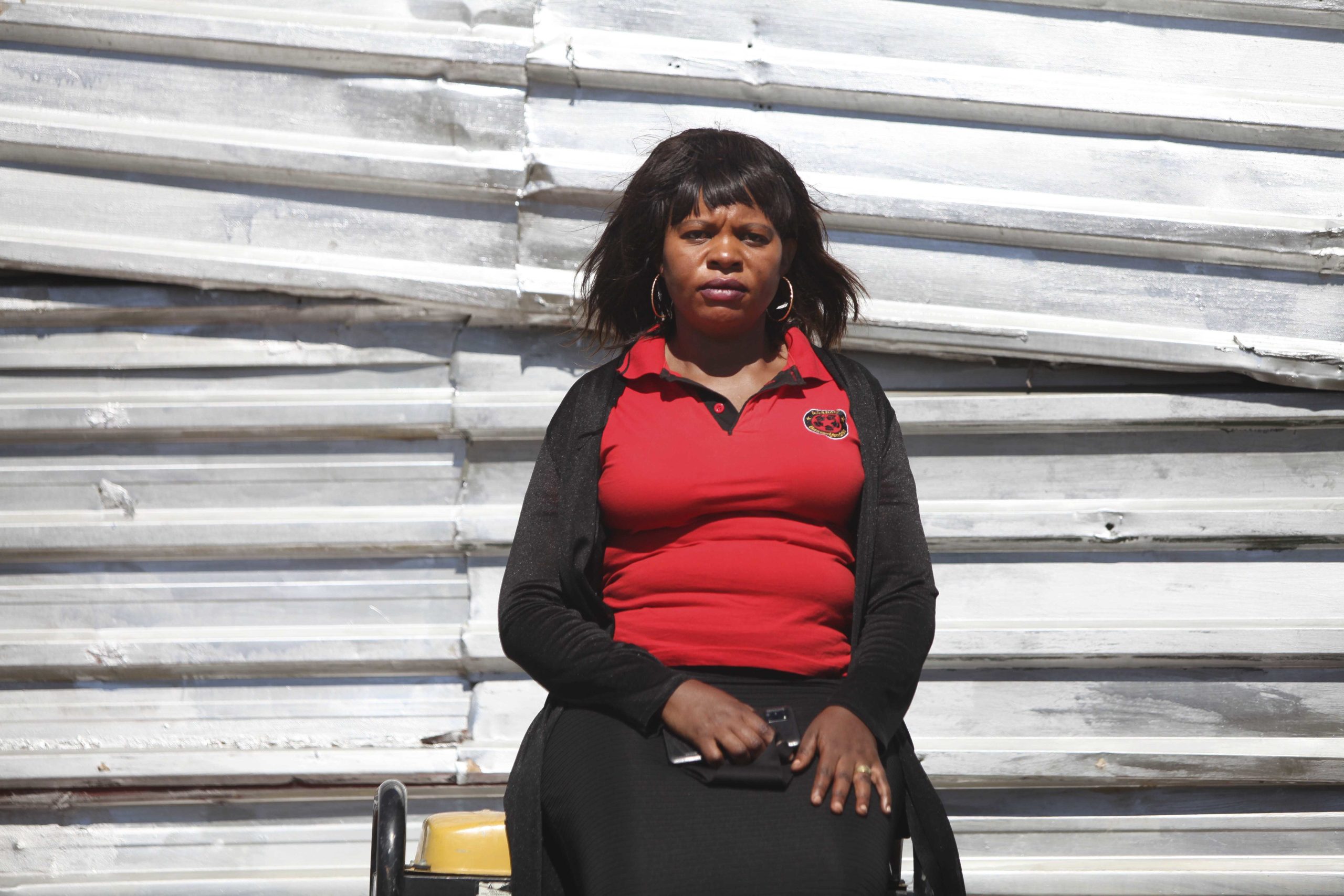
Liberatory participation
Though Nonkwelo wrote the play, it was Ngcobo who made it all happen. She describes the relative success of their occupation as umzabalazo (a struggle) that is rooted in socialism and communism. It was around these themes that she rallied other locals behind the play. It was so residents could actively participate in addressing issues and modelling solutions to their problems on stage. In this sort of play, spectators would become performers, a participatory process that would be empowering and liberating, ultimately leading to a kind of transformation, she said.
“We started the struggle together, sleeping outside in the winter, sharing whatever food we had. We cried and got tired but we still stood our ground together. That is how communities are developed. Although we won the struggle – because the metro [police unit] realised that we were not backing down – we stayed, ngenkani (in stubborn determination).
“Now, it is time to mould this space into a society that can succeed even on its own. We need the youth to participate in developmental programmes, we need the children to feel safe and not have to walk far for a simple necessity such as a toilet,” Ncgobo said.
A collection of green glass bottles adorn the settlement’s entrance, giving the impression that the place is lush. But it is a false impression, a facade. In reality, there is not much in terms of vegetation, only a few trees here and there. However, walking through the dusty, narrow passages on a busy October afternoon one still feels a kind of warmth.
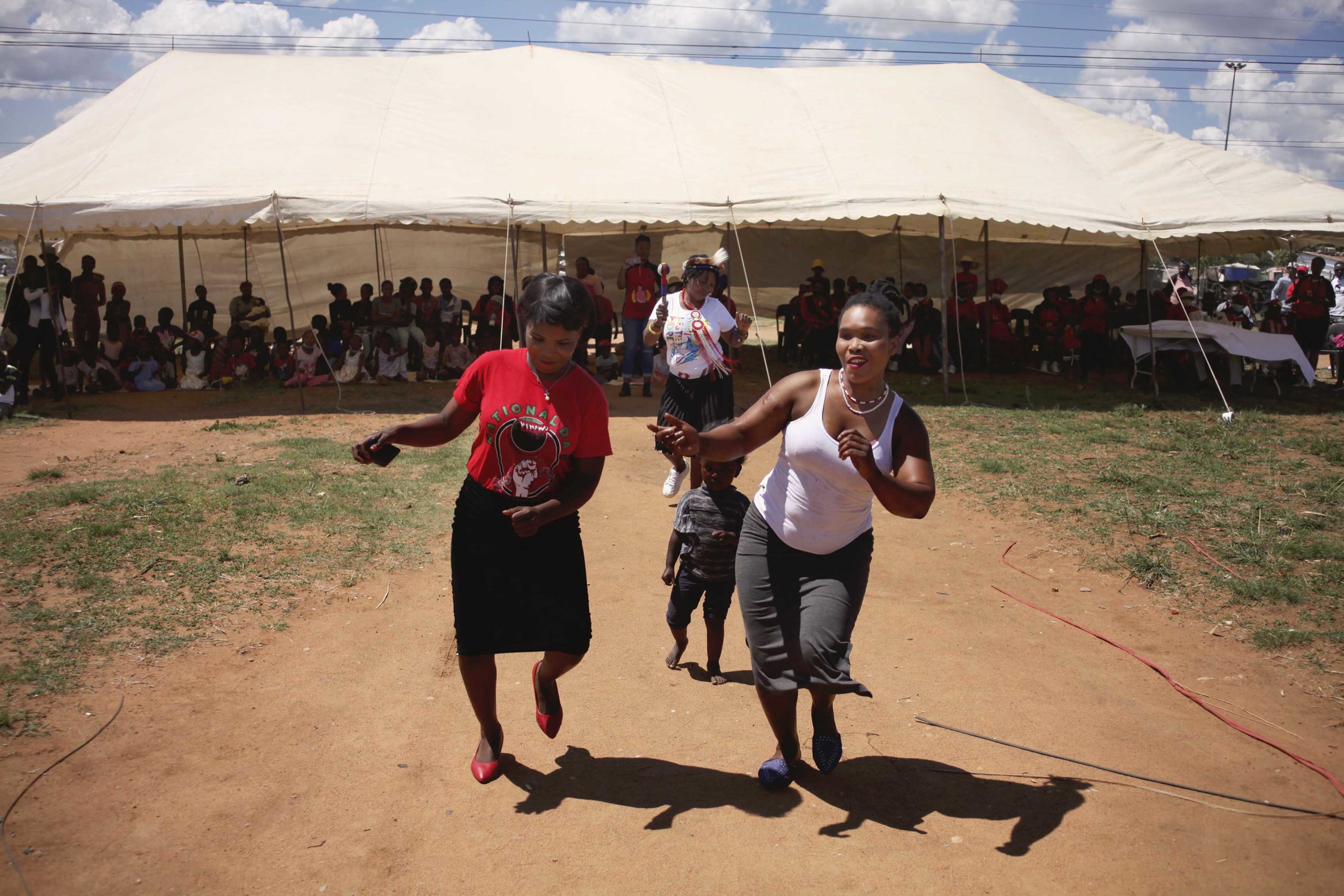
A sky-blue spaza shop is right at the entrance. In a nearby corner stands a small stall that sells ama-Russian (sausages). It is a short glimpse into the newly established settlement. But, this afternoon, the last Friday of October, there is a buzzing excitement as some residents prepare for the Theatre of the Oppressed show slated to be staged the following day.
As rehearsals continue into the evening, the performers hasten to wrap so they can leave before it gets dark. There is no electricity in the settlement; no streetlights either. Residents rely on self-made connections for water and electricity. They relieve themselves in pit toilets they have built themselves.
It is a village of people of all ages, but elderly women live in a designated section called “Gogo Street”. All are, of course, impoverished. They say the fear of being evicted, and its long-term impact on their children, is their constant worry. A small crèche, recently built and painted by the residents, is yet to open.
It is not the first time people have settled here. Before 2019, many were evicted after trying to set up homes in the area, residents said. And while current dwellers have been able to stay for some time, it has not been easy. They have been harassed, they said, and are routinely threatened with evictions. It is these abuses and struggles that the theatrical performances sought to highlight.
The big day
About 50 people came to watch the show, staged in the area’s sports field. It was the first of its kind in the settlement. Many attendees were dressed in the colours of Abahlali baseMjondolo – black and red. Older people and children sat in the front row of the tent.
Nonkwelo led the production. Dressed as a Zulu warrior, she performed a poem about the realities and struggles faced by those living in the settlement:
This is not a fairytale
We were fighting for belonging
And for a basic human right
For a home.
In this day and age
We are still fighting
We are fighting for education
We get killed
We demand jobs
We get rejected
We are always fighting
It’s a deadly struggle
To be an African in South Africa
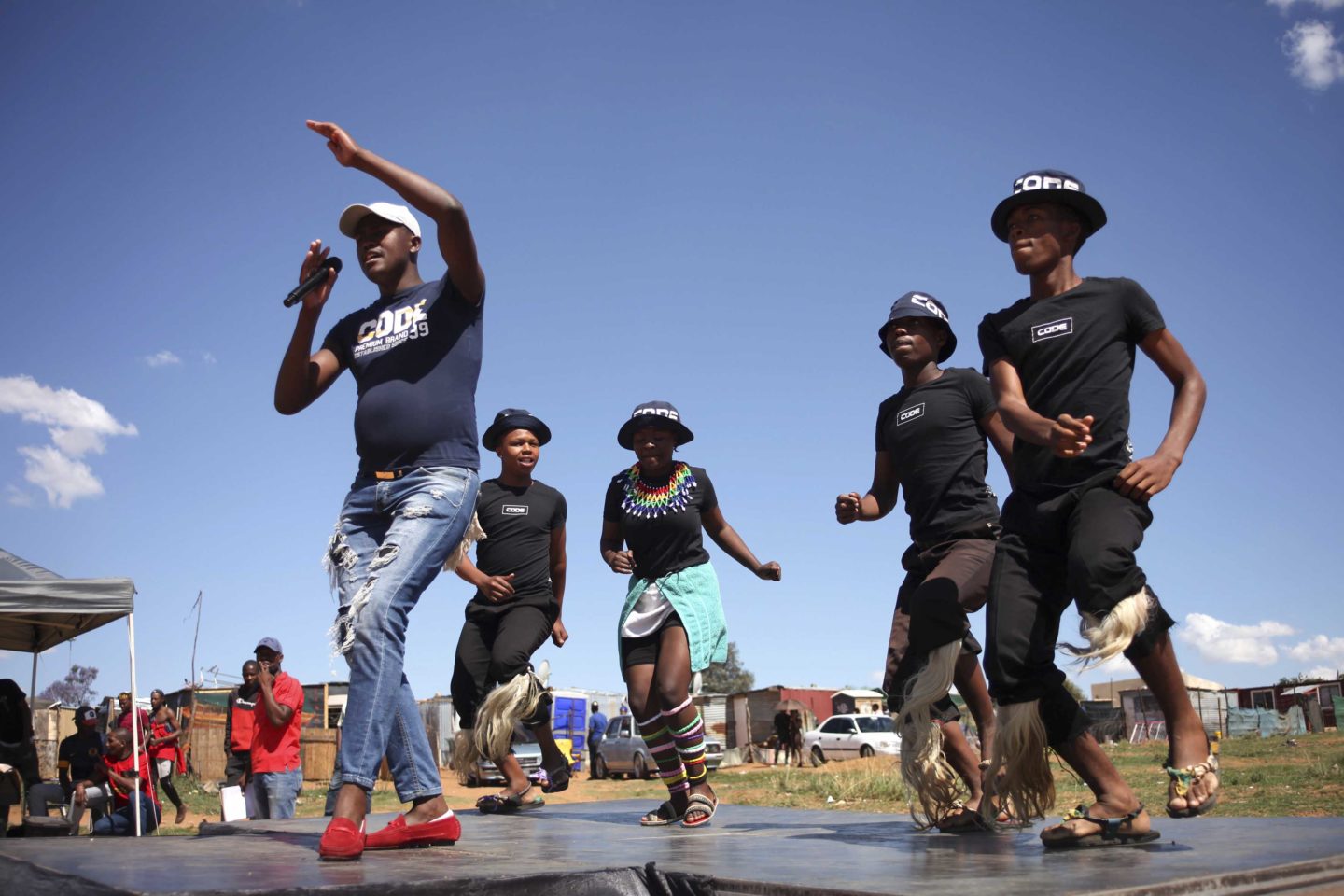
The first performance was delivered by a group of children aged between 10 and 15. They narrated the origins of Zikode village and evoked laughter and painful memories. The children’s depiction of past events – re-enactments of the violent evictions and conversations they would overhear while their parents prepared for the next day’s evictions – examined their trauma through drama.
As they performed, the painful history of the settlement people was palpable. But, out of their victimisation, they are turning to activism – performing and expressing their experiences, all for positive change.
Maskandi music and story-telling through dance filled in the time between acts. Amaciko Endalo, a local group, performed a song called Mama, kunzima eGoli (Mom, life is hard in Johannesburg), lamenting migration’s woes.
The last act was a dramatic depiction of the gender impact of evictions, poverty, lack of policing, violence and social transformation. It demonstrated just how dispossession is often enabled by political decisions.
Through the performance, fundamental issues about housing rights and the brutality of evictions were explicitly touched on. Spectators were taken back to the time of turmoil and uncertainty when the community fought for the land they now occupy.
In one of the acts, about 10 performers – dressed as Abahlali baseMjondolo members – played a scene in which they confronted the police (intent on evicting them), nurses who refuse to help them at clinics and an infamous ward councillor who disregards the settlement and its people.
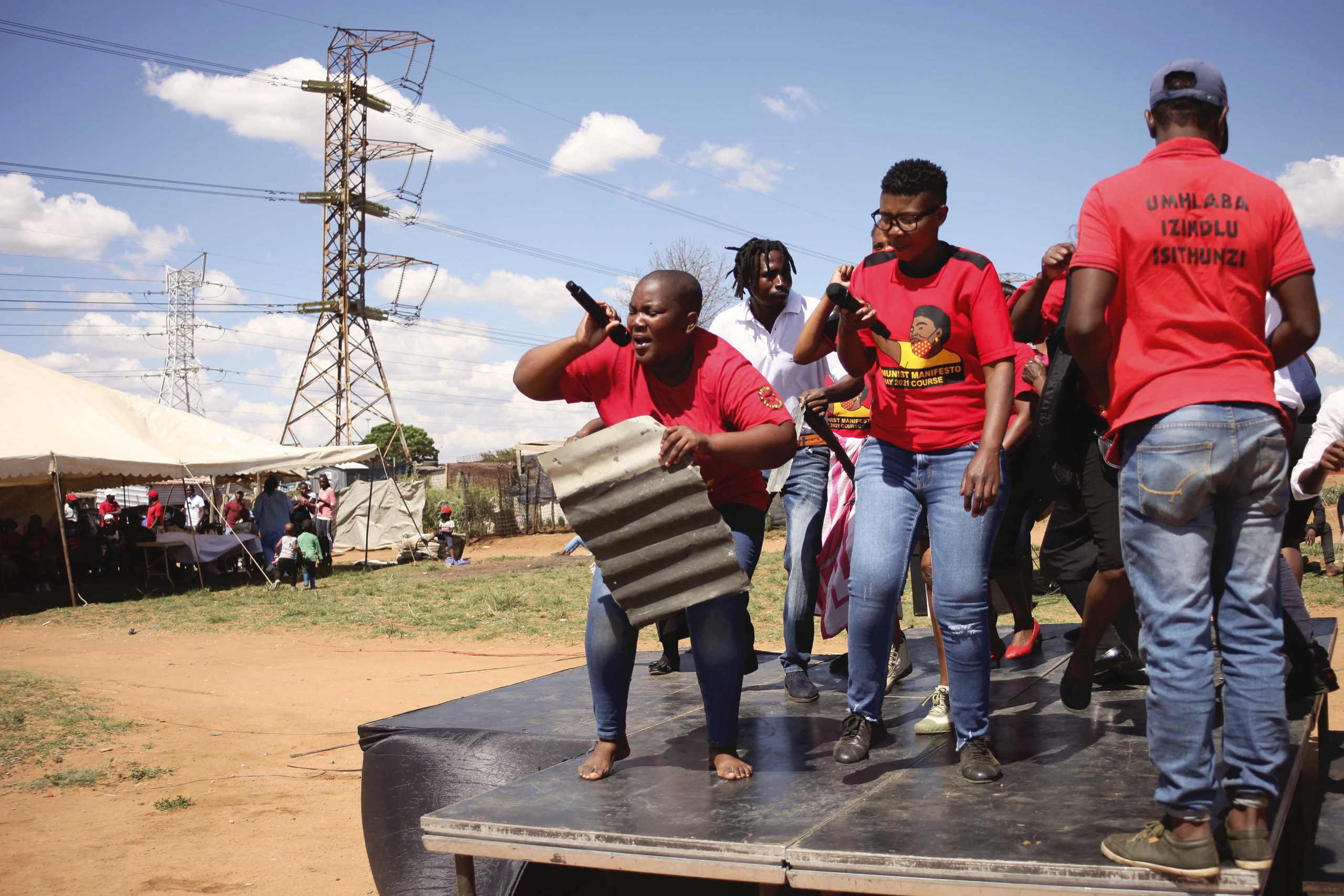
Creative protest essential
The show – by drawing on the living conditions and struggles of the residents of Zikode Village – demonstrated the core aim of Boal’s concept, which is, essentially, the need for a community to express its struggles and openly call for change through the medium of theatre.
Actor and director, Mandisi Sindo, who established the Shack Theatre in Khayelitsha, his hometown, said transforming shacks or free spaces into art spaces is a form of revolt and empowerment for youth in such settlements.
“When you are a shack dweller, rejection and exclusion is always in front of you. That’s why it was important for me to create a theatre space right in the middle of the settlement to show people that something good can come out of the shacks: joy, talent and revolt. Although we could use some support from the government, we know they have already forsaken us. White art spaces are embraced much more than Black spaces where art could act as a liberator for the young people living in shacks.”
Alex Sutherland, coordinator of creativity in activist education at Tshisimani Centre for Activist Education, echoed Mandisi’s words, adding that theatre can be used as a tool to discuss issues of spatial and economic equality.
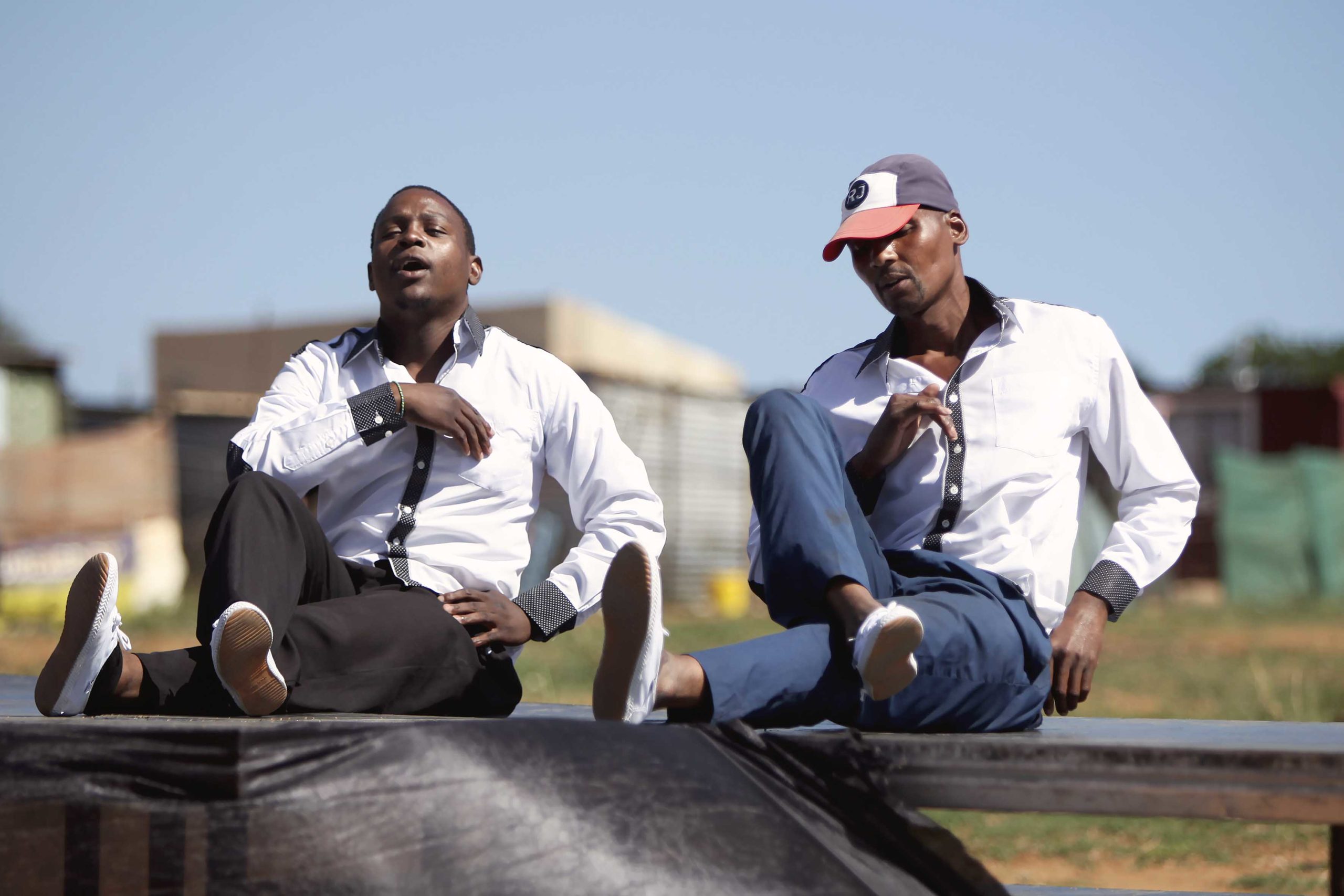
“Theatre interventions in public spaces can create a kind of political spectacle: it is part of a repertoire of arts activism that can be used to conscientise, gain attention and be part of creative campaigning. It also shows how ordinary people are actors and creators in and of their world,” said Sutherland.
Displaced residents say they want to use politics and the arts to put the issues of shack dwellers in the settlement into sharp focus. The Zikode settlement, although new, presents an unstable present poised between a violent past and a hopeful future.
Sutherland adds that creating performances out of lived experiences is a “collective act of storytelling”.
“When people who have experienced oppression translate those experiences into a collective, participatory, embodied art form in a public space which is also often the site of oppressive and abusive practices, they are transforming those spaces into sites of resistance, memory, heritage and activism,” said Sutherland.
